‘Death to LGBT’ graffitied on Holocaust memorial in Tel Aviv
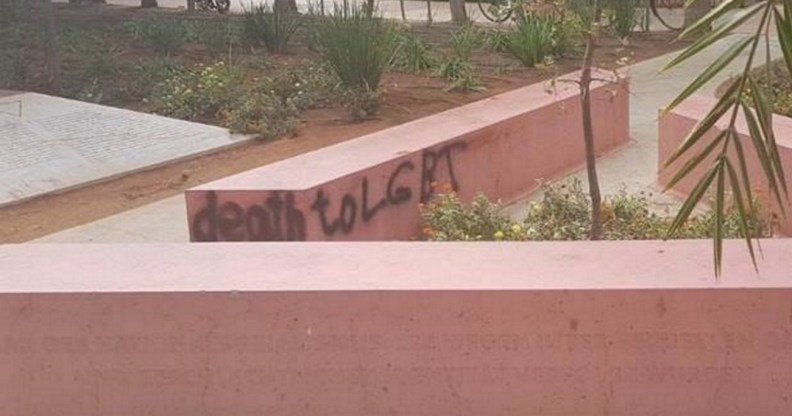
Tel Aviv Mayor Ron Huldai photographed the graffiti (ron.huldai/facebook)
The message “death to LGBT” has been graffitied on a memorial to queer people who suffered and died in the Holocaust.
Police have opened an investigation into the graffiti, which has been cleaned from the monument in Tel Aviv’s Meir Park after Mayor Ron Huldai ordered its removal on Thursday (October 25), The Jerusalem Post has reported.
Huldai decried the memorial’s defacement, writing on Facebook: “I condemn the vandalism of a memorial to members of the gay community who perished in the Holocaust.
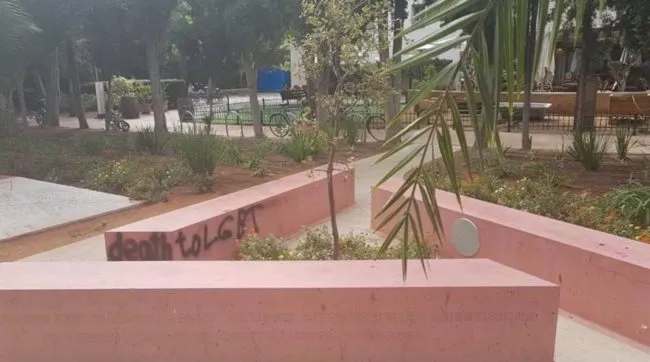
The monument is in the shape of a pink triangle (ron.huldai/facebook)
“I have issued instructions to immediately erase the graffiti.”
He assured his followers that he would do his best to serve LGBT+ people in the city, which has a long-held reputation for inclusivity and will host Eurovision 2019, saying: “We will continue to act and protect members of the community as we have done so far.”
Less than six hours later, he posted another photo of the monument — this time cleansed of the message — with the accompanying caption: “Taken care of.”
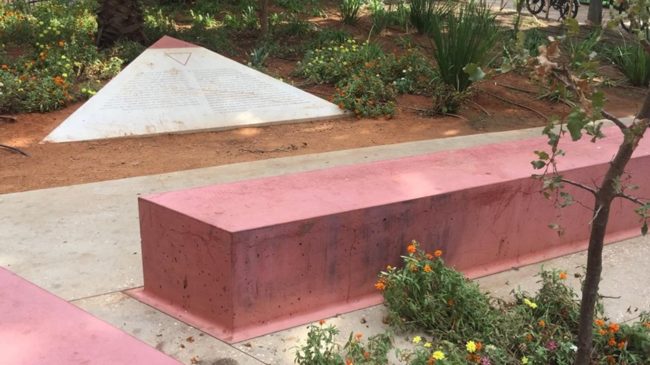
The cleaned memorial (ron.huldai/facebook)
The memorial, which was completed in 2014, is shaped like the pink triangle which queer victims of the Nazis were forced to wear on their clothes as they were sent to concentration camps and killed in their thousands.
The inscription on the triangle reads: “In memory of those persecuted by the Nazi regime for their sexual orientation and gender identity.”
One of Tel Aviv’s mayoral candidates, Asaf Zamir, said on Twitter that he had “no words” to explain how much he condemned the graffiti.
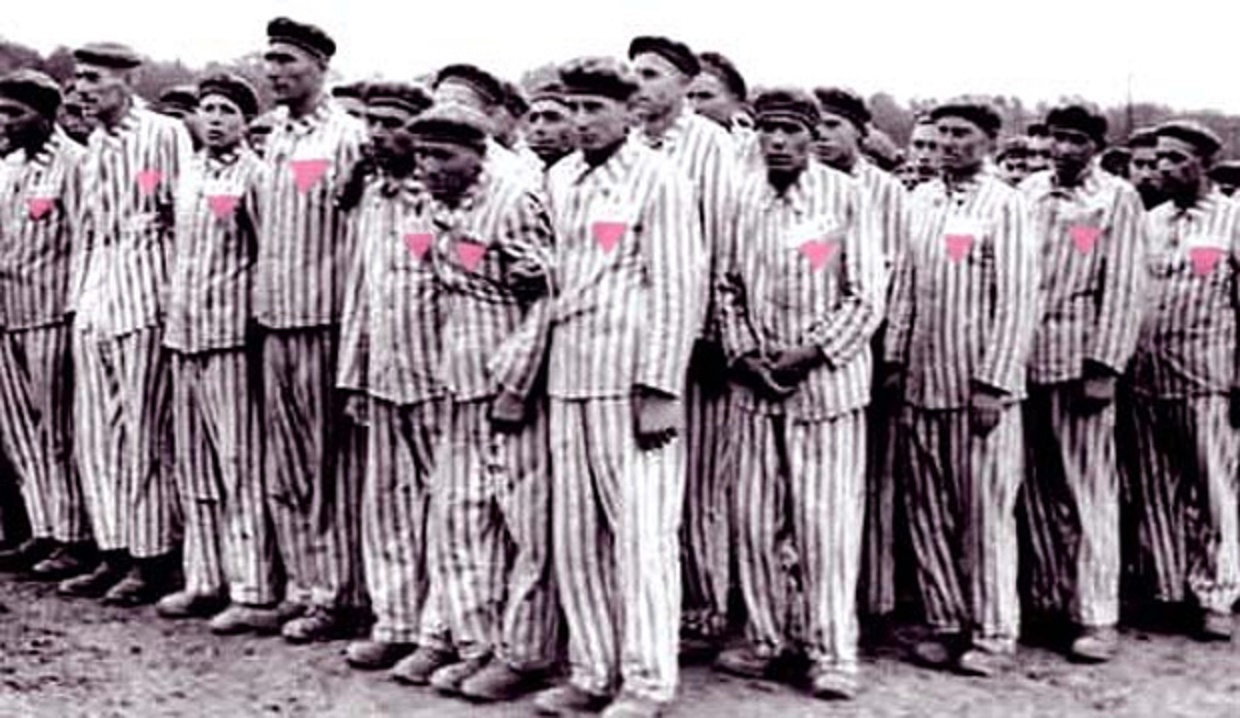
Gay men in a Nazi concentration camp
“I was shocked by the hatred that was displayed at the memorial to members of the gay community who perished in the Holocaust,” he wrote.
“I hope that the police will find those in charge and bring them to justice.
“I have no words to describe the feeling of distaste for anyone who thinks he can threaten members of the gay community.
“I will continue to support the members of the community and act actively for their freedom and rights,” added Zamir.
Etai Pinkas, a city councillor and chairman of the Municipal LGBT Community Centre which stands just metres from the memorial, said the incident was a message to “those who thought we were exaggerating, that everything in Tel Aviv was wonderful.
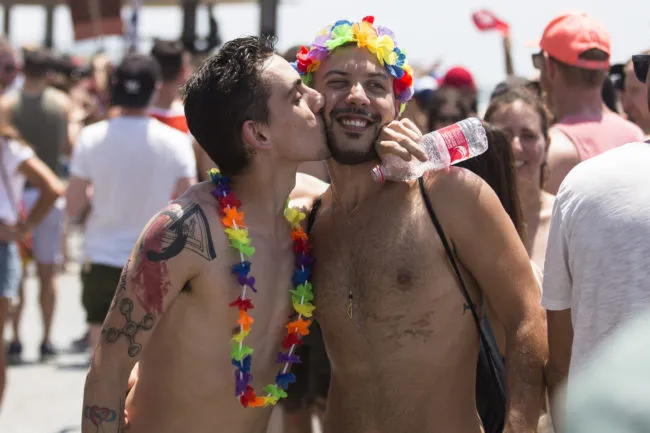
Tel Aviv is generally known as Israel’s gay capital (Amir Levy/Getty)
“I am in the heart of the city, in the Meir Garden near the Pride centre I built a decade ago. We will not give up our rights, we will continue to fight for our security and equality.”
Tel Aviv’s Pride parade usually draws more than 200,000 people every year, including thousands of LGBT tourists, making it the largest Pride celebrations in the Middle East and one of the biggest in the world.
In general, Israel is moderately progressive on LGBT rights.
The country has laws protecting LGBT people from discrimination, transgender people are able to change their legal gender and the Israeli government recognises same-sex marriages conducted overseas.
Only approved religious authorities can administer legal weddings in Israel, and none approve of same-sex marriage, meaning same-sex Israeli couples have to marry abroad.

